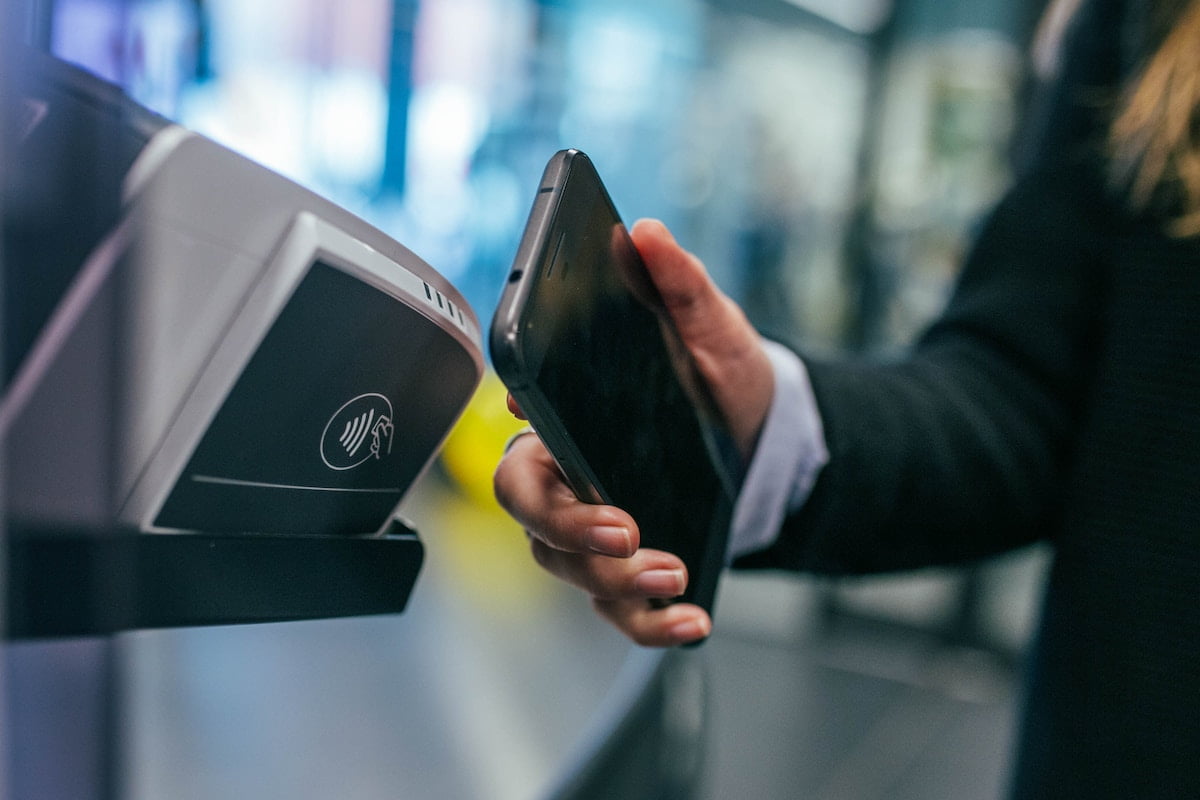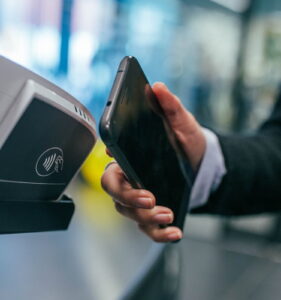As a small business owner, you know that getting paid is essential to your success. But with so many payment options available, it can be challenging to know which one is right for your business. In this article, we’ll explore the world of payment processing and help you understand what it takes to streamline your transactions and boost your bottom line.
What is Payment Processing?
Payment processing is the process of accepting, verifying, and recording a payment transaction. It involves the use of electronic payment systems, such as credit card processors, mobile payment solutions, and online payment gateways, to facilitate transactions between merchants and customers.
Payment processing is an essential part of any small business operation, as it allows you to accept payments from customers quickly and securely. But choosing the right payment processing system can be a daunting task, as there are many different options available, each with its own set of features and benefits.
Types of Payment Processing Systems
There are several types of payment processing systems available for small businesses. Here are some of the most popular options:
Credit Card Processing
Credit card processing is the most popular payment processing option for small businesses. It involves the use of a credit card processor, which allows merchants to accept credit and debit card payments from customers.
Credit card processing can be done in-person, online, or over the phone. In-person transactions typically involve the use of a card reader or POS system, while online and phone transactions can be processed using a virtual terminal.
Mobile Payment Solutions
Mobile payment solutions, such as Apple Pay and Google Wallet, are becoming increasingly popular among small businesses. These solutions allow customers to pay using their mobile devices, making transactions quick and convenient.
Mobile payment solutions can be used in-store, online, or at events. They typically involve the use of a mobile card reader or mobile wallet app.
Online Payment Gateways
Online payment gateways, such as PayPal and Stripe, are ideal for small businesses that operate online. These solutions allow customers to pay for goods and services using a secure online payment portal.
Online payment gateways are easy to set up and can be integrated with most e-commerce platforms. They typically charge a percentage-based fee for each transaction.
Choosing the Right Payment Processing System
Choosing the right payment processing system is crucial for small businesses as it can directly affect their bottom line. With so many options available, it can be challenging to choose the best payment processing system that suits the business’s specific needs. Here are some factors to consider when selecting the right payment processing system:
Transaction Fees
Transaction fees are a vital consideration when selecting a payment processing system. Different payment processing providers charge varying transaction fees, including percentage-based fees, flat fees, and per-transaction fees. Flat fees can be beneficial for businesses that have a low transaction volume, while percentage-based fees may work best for businesses with high transaction volumes.
It’s essential to compare the transaction fees of different payment processors before making a final decision. Some payment processing providers offer a low transaction fee but may have hidden charges or added fees that can add up quickly, so it’s crucial to read the fine print.
Security
Payment processing security is a significant concern for businesses and their customers. A secure payment processing system ensures that customer data is kept safe, and transactions are protected from fraud and other security threats.
The payment processor should be compliant with industry standards, such as the Payment Card Industry Data Security Standard (PCI DSS). The processor should have robust security measures in place, such as encryption, tokenization, and fraud detection.
Integration
Small businesses often use different tools and software to manage their operations, such as accounting software, e-commerce platforms, and POS systems. It’s essential to choose a payment processing system that integrates smoothly with existing systems to avoid the hassle of switching to a new system entirely.
A payment processing provider should offer easy integration with different systems, including website plugins, APIs, and SDKs. Integration should be seamless and easy to set up.
Customer Support
Customer support is essential when selecting a payment processing system, especially for small businesses with limited resources. Technical issues and other concerns can arise, and it’s crucial to have access to reliable and responsive customer support to resolve these issues quickly.
A payment processor should have a reliable customer support team that is available 24/7. The payment processor should provide different support channels, such as email, phone, chat, and knowledge base.
Payment Options
Small businesses should choose a payment processing system that offers multiple payment options to customers. This includes accepting credit and debit cards, mobile payments, and online payments.
A payment processor should offer support for different payment types and methods, including EMV, NFC, and contactless payments. The processor should also be able to accept payments in different currencies.
User Experience
The user experience is essential when choosing a payment processing system. The payment processor should have a user-friendly interface that makes it easy to use and manage payments.
The payment processor should have an intuitive dashboard that displays important metrics, such as transaction history, fees, and payouts. The dashboard should be customizable to meet the specific needs of the business.
Streamlining Your Payment Processing
Streamlining your payment processing can help small businesses operate more efficiently and save time and money. Here are some ways to streamline your payment processing:
Automate Invoicing
Automating your invoicing can save you significant time and effort. Many payment processing systems allow you to automate invoicing and send reminders to customers when payments are due. This feature reduces the time and effort required to follow up with customers for payment.
Offer Multiple Payment Options
Offering multiple payment options can make it easier for customers to pay and can help reduce the number of unpaid invoices. Consider offering credit and debit card payments, mobile payments, and online payment options. By providing multiple payment options, customers can choose the option that works best for them, increasing the chances of receiving payment.
Set up Recurring Payments
If you have customers who make regular payments, such as monthly subscriptions, consider setting up recurring payments. This can save you time and ensure that payments are received on time. Recurring payments can be set up automatically and reduce the need for manual invoicing and follow-up.
Use a Payment Processing API
If you have a custom e-commerce platform or POS system, you may want to consider using a payment processing API to streamline your transactions. An API allows you to integrate your payment processing solution directly into your existing system, making transactions faster and more efficient.
Keep Your Payment Data Organized
Keeping your payment data organized can help you track payments and identify any issues quickly. Make sure that you have a system in place to track payments and store payment data securely. By keeping your payment data organized, you can easily monitor your cash flow, identify discrepancies, and make informed financial decisions.
Use Payment Processing Reports
Many payment processing systems provide reports that can help you track your transactions and monitor your business’s financial performance. These reports provide insights into transaction volume, revenue, fees, and more. By reviewing these reports regularly, you can identify any issues, track your progress, and make informed financial decisions.
Streamlining your payment processing can help small businesses operate more efficiently, save time and money, and improve customer satisfaction. By automating invoicing, offering multiple payment options, setting up recurring payments, using a payment processing API, keeping your payment data organized, and using payment processing reports, small businesses can streamline their payment processing and improve their bottom line.
The Benefits of Streamlining Your Payment Processing
Streamlining your payment processing can offer several benefits for your small business, including:
- Faster Payments
Streamlining your payment processing can help you receive payments faster, which can improve your cash flow and help you manage your finances more effectively.
- Increased Efficiency
Efficient payment processing can save you time and effort, allowing you to focus on other aspects of your business.
- Improved Customer Satisfaction
Offering multiple payment options and streamlining your transactions can help improve customer satisfaction, which can lead to repeat business and positive reviews.
- Better Financial Management
Streamlining your payment processing can help you manage your finances more effectively, allowing you to track payments and identify any issues quickly.
Payment processing providers
There are many payment processing providers available, each with its own set of features, fees, and services. Here are some of the most popular payment processing providers for small businesses:
PayPal
PayPal is a popular payment processing provider for small businesses. It offers a simple and secure way to accept payments online, with competitive transaction fees. PayPal also offers various tools to manage payments, including invoicing and recurring payments.
Square
Square is another popular payment processing provider for small businesses, especially those with in-person transactions. It offers a range of payment options, including credit and debit cards, mobile payments, and invoicing. Square also offers additional tools, such as inventory management and customer data analytics.
Stripe
Stripe is a payment processing provider that offers a wide range of payment options, including credit and debit cards, mobile payments, and international payments. It also offers features such as recurring payments, invoicing, and fraud detection. Stripe is popular among small businesses that operate online.
Authorize.Net
Authorize.Net is a payment processing provider that specializes in online payments. It offers a range of payment options, including credit and debit cards, mobile payments, and e-checks. Authorize.Net also provides fraud detection and prevention tools to help protect businesses from payment fraud.
Braintree
Braintree is a payment processing provider that offers a range of payment options, including credit and debit cards, PayPal, Venmo, and mobile payments. It also provides features such as recurring payments, fraud detection, and support for international payments.
Worldpay
Worldpay is a payment processing provider that offers a wide range of payment options, including credit and debit cards, mobile payments, and alternative payment methods. It also provides features such as recurring payments, fraud detection, and support for international payments.
BlueSnap
BlueSnap is a payment processing provider that specializes in cross-border payments. It offers a range of payment options, including credit and debit cards, mobile payments, and alternative payment methods. BlueSnap also provides features such as recurring payments, fraud detection, and support for multiple currencies.
Choosing the right payment processing provider is essential for small businesses to ensure smooth and secure payment transactions. Each provider has its own set of features, fees, and services, and it’s important to choose one that meets the specific needs of the business. By comparing the different payment processing providers and considering the factors that matter most to your business, you can select a provider that meets your needs, provides reliable and secure payment processing, and delivers excellent customer support.


